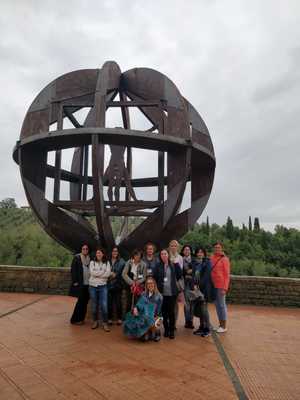As the "Future Work Skill for 2020" of the Institute of Future of Palo Alto (California) highlights, the young people of the third millennium will need 10 work skills including adaptive thinking, processing thinking, sense making, social intelligence; skills that will define the winning mentality to be entrepreneurs of themselves, to solve complex problems and move in a landscape of rapidly changing organizational forms.
The project I.D.E.A.L. (acronym for "Innovating by Doing Experiments About Leonardo") has the aim to involve students in FABLABs in order to mobilize the most technical and cross-curricular skills of know-how.
FABLABs are workshops where pupils can experience what they are studying, can combine theoretical reflection with manual skills, using "craft" tools and digital methodologies.
The partnership is strongly motivated by the common need of all partners to:
-
creating activities in which peer-education relationships are established by means of the use of ICT
-
carriying out diversified strategies for the inclusion of pupils with different socio-cultural backgrounds
-
Mobilizing "manual skills"
-
Developing the critical thinking, the ability to work in teams, the initiative, the entrepreneurship and the digital skills.
Leonardo da Vinci is the reference point, between past and future. Students are involved in theoretical and practical activities: from the knowledge of the works of the Genius as an inventor of machines, such as the helicopter, the movable bridge, the catapult, the submarine up to the realization in 3D, in the handicraft workshop, of some of his models. The project puts into practice an innovating methodology, it encourages young students, between 9 and 12 years of age, to imagine, invent, design and build the prototype of machines which are able, through sensors, to detect obstacles and interact with the surrounding environment by producing sounds, lights or signals.
The good practice of FABLAB will produce some machines that will be shared, used and experimented during the mobilities and disseminated in traveling exhibitions